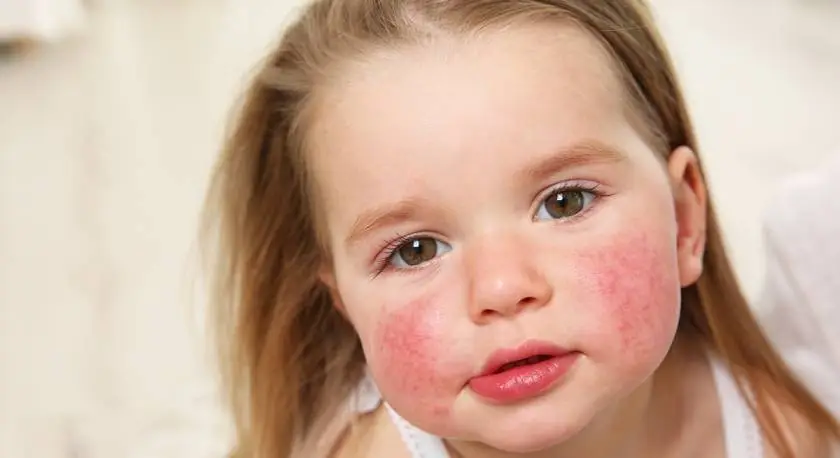
If you’re raising a pre-teen or adolescent living with diabetes, you know that sometimes conveying the seriousness of the disease can be a difficult challenge. What oftentimes is easier and convenient now, such as grabbing fast food on the go, or neglecting to adequately count carbohydrates, take insulin or even test for days on end can contribute to serious complications later on in life. It can be extremely difficult to get through to your teen but making sure they know the seriousness of a life with diabetes is paramount. So, how do you communicate with a teenager when diabetes is the last thing they want to deal with? Does “tough love” work on teens?
Feeling Invincible
One’s adolescent years are an incredible time of drastic and fast change. Not only are teenagers growing rapidly physically and emotionally, but they’re also dealing with the drama of school and friends, and the challenges that managing a chronic condition brings. Teenagers and young adults often tend to feel quite invincible, even earning the nickname “young invincibles” for their seeming unwillingness to buy affordable health care plans or take reasonable preventive actions to take care of themselves and their bodies. More often than not, when teenagers neglect their diabetes management, it’s a sign of feeling quite burnt out.
Do Scare Tactics Work?
Can scare tactics help your teenager take their diabetes more seriously? When communication is difficult, it can seem almost impossible to prioritize diabetes management. Sometimes a teenager just doesn’t want to hear it, and in the worst of cases, giving your teenager scare tactics in the form of storytelling worst-case scenarios, playing the game of “what if” with complications, and threatening them can backfire, resulting in dangerous management patterns, disordered eating, or can even cause them to completely shut down all communication.
Lynn, from Pennsylvania, says,
“Scare tactics don’t work with me, and no one I know has used them. The best support I’ve gotten is when my loved ones decided to eat keto. We plan low-carb meals and look for new recipes together. If [my family] was eating tons of carbs, it would make it harder for me to stay low-carb. Otherwise, we don’t really talk much about my diabetes…my family does sometimes ask about my blood sugar after trying a new dish to see if it ‘worked’ for me.”
Cora adds,
“As young people, people with type 1 diabetes take criticism and scare tactics to heart. It’s basically verbal abuse because we don’t hear the practicalities behind what the parent is saying. Young people hear strongly worded comments about efforts to control our diabetes, and we take it personally. Except it comes through as ‘you’re bad’, ‘you’re lazy’, or ‘you’re incompetent’.”
Alienating your teenager with scare tactics is harmful, and you most likely will not get your desired result (more attention paid to their diabetes). There are healthier ways to help a person with diabetes in your life.

Photo credit: Adobe Stock
Honesty Doesn’t Have to Be Scary
It’s important to not scare your teenager with threats of complications, or a dark and scary future that may not come to fruition. Instead, model good behavior and have the whole family adopt practices that encourage a healthy lifestyle.
Meryl says,
“The best thing I have found to do is offer foods that he likes and can eat and not to nag.”
The good news that is well-adjusted teenagers eventually will take over the management of their diabetes, and thanks to technology, will begin to thrive. The power struggle and shirking of responsibility that comes with adolescence will end. In the meantime, here are some strategies to help you and your teenager thrive through this period of transition.
- Be there to listen. The power struggle between a teenager with diabetes and their parents comes down to them wanting to feel more independent, and the parents ultimately having to give up some (or all!) control of diabetes management and rigorous expectations. Make sure you’re there to talk with your teen, but more importantly, to listen to their wants and needs. If they want autonomy and space, be there to give it, but also hold them accountable (by showing you their glucometer memory, pump data, or meals and carbohydrate counts), to eventually earn more freedom. This way, you can problem-solve and strategize around emerging issues together. Additionally, here are some things not to say to someone with diabetes.
- Find a great endocrinologist. Find a doctor that your teenager will work well with, and remember that communication is key. Finding the right dietitian, social worker, nurse, and primary care physician is also critical during this vulnerable time in a teenager’s life. Make sure your teenager feels comfortable talking with their doctors, sharing their concerns, and standing up for themselves during visits. This will be crucial for good diabetes management as they take on more of the responsibility of their care moving forward.
- Expose them to other teens with diabetes. Sign your teenager up for a diabetes camp, or a local support group for teenagers dealing with diabetes. Make sure they know that they are not alone, and find ample opportunities for them to meet other kids their age who are struggling with the same issues that they are. Usually, once a kid or teenager makes a “dia-bestie” their diabetes management improves, because now the thing that used to single them out suddenly makes them part of the cool crowd, like having the newest Patch Peelz or insulin pump.
- Try a tech break. If your teenager is struggling with constant insulin pump and continuous glucose monitor (CGM) changes all the time and is feeling like a cyborg, let them take a technology break. Sometimes a change in routine helps everyone suffering from diabetes burnout, and it can help bring a fresh perspective of and appreciation for the technology when you bring it back.
- Seek individual or family counseling. Sometimes a child loses interest in their diabetes management due to depression, which is more common among people with diabetes. Teenagers who have depression may not always exhibit the classic symptoms of depression such as crying, sudden anger, and changes in sleep and eating patterns. Regardless, a teen who stops taking an interest in their diabetes management is sending a clear message and call for help. This is an excellent time to find a great therapist who can help your teenager work through their issues.
Peter from New Jersey adds,
“From my experience, the key is to bring them to these realizations gradually, at a pace they can handle. That pace is very individual, and parents, and sometimes even doctors need to work on understanding that pace. In the meantime, just support them and make sure they don’t make any huge mistakes.”
These strategies can help you and your teenager thrive during this turbulent time in their lives, by prioritizing compassion, openness, and love. Also, be sure to check out recent research from the American Diabetes Association (ADA) about what works when it comes to transitioning to self-management.
What have you found to be the most helpful strategies in helping your teens thrive with diabetes? Please share your thoughts and experiences in the comments below.
Post Views: 5
Related Post
 27
27 Jun
Effective Allergy Treatments for Kids: A Comprehensive Guide
Is your youngster experiencing a runny nose, sniffling, and bothersome eyes? Assist them with feeling improved with these regular sensitivity cures you can attempt at home. Does your kid have a runny nose, sniffling, and irritated eyes? They may be managing.
Read More 20
20 Jun
Journal Prompts for Mental Health: 7 Ideas to Explore
Journaling has a heap of psychological well-being benefits, however you don't necessarily have any idea what to expound on to get the worth out of a journaling meeting. That is where journaling prompts for treatment come in. More profound diary prompts.
Read More 13
13 Jun
10 Natural Health and Nutrition Tips That Are Evidence-Based
If you have any desire to help your wellbeing and prosperity, there are a lot of regular and home solutions for browse, going from keeping away from singed meats and added sugars to rehearsing reflection. With regards to understanding what's sound,.
Read More 04
04 Jun
4 Tips for Preventing Food Allergies at School
Most guardians send their kids off to start another school year with energy. However, guardians of youngsters with extreme food sensitivities frequently have genuine apprehension. They frequently wonder: Will their kids inadvertently eat the food they're hypersensitive to? Food sensitivities are.
Read More